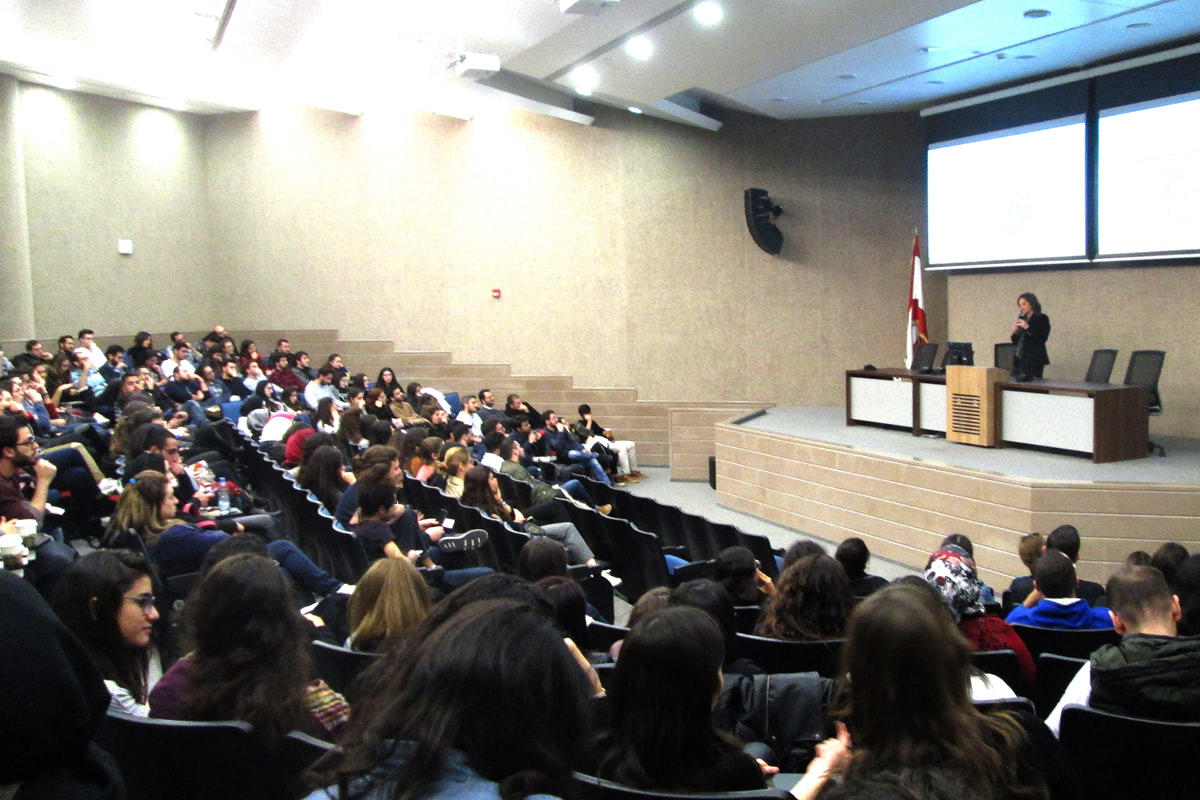Preventing Medical Errors with Interprofessional Education
Students from different disciplines learn the importance of collaboration in preventing medical mistakes.
Medical errors take a staggering toll on patients and healthcare systems each year across the world. The problem is present everywhere, and health systems spend major time and resources to address it.
Here at LAU, health sciences, nutrition and social work students are being equipped with the knowledge and skillset to identify and prevent such errors from happening as part of the university’s Interprofessional Education (IPE) program.
The program consists of on-site practice activities and five workshops called Steps, the fourth of which was held on January 29 and addressed improving safety of care through interprofessional collaboration.
“Health and social work students must learn with, from and about each other so that when they graduate, they can work together as team members,” said Dr. Maha Habre, clinical assistant professor of nursing and coordinator of the IPE.
The IPE was launched in the spring of 2012 and is still one of a kind in Lebanon. “LAU is the first in the country and one of the leading in the region to implement such a well-organized interprofessional program that advances students gradually from their interprofessional education into collaborative practice,” added Dr. Habre.
The workshop gathered 185 students from the nursing, medicine, pharmacy, and nutrition programs, introducing them to the magnitude and significance of medical errors, the differences between the personal and systematic approaches, as well as the role of each professional in improving patient safety.
After watching a short film by the World Health Organization, the students were presented with real-life examples of various medical errors by Dr. Hanane Barakat, clinical assistant professor at the Department of Anesthesiology at the Gilbert and Rose-Marie Chagoury School of Medicine and chair of the Performance Improvement Committee at LAU Medical Center-Rizk Hospital.
In her talk, Dr. Barakat discussed the frequency, costs and types of medical errors, highlighting that they usually occur because of badly designed systems and not only one individual. “We need to design a system that puts patient safety first,” she said.
She encouraged the students to follow The Joint Commission’s Universal Protocol as part of the National Patient Safety Goals, which include effective communication and verification of correct procedure, patient and site. “It is your role as healthcare professionals to advocate for the safety of your patients,” she told the students.
Clinical Assistant Professor and Medication Safety clinician from the School of Pharmacy Dr. Elsy Ramia and Patient Safety and Risk Management Supervisor at LAU Medical Center-Rizk Hospital Joelle Khysho then took the stage to analyze a real-life situation that resulted in a patient’s death.
After presenting the sequence of events, Dr. Ramia – who supervises the medication safety rotation for PharmD students at the medical center – pointed out the possible reasons behind the error, such as lack of knowledge of each team member’s role, lack of experience and inappropriate communication. “You can never over-communicate in healthcare,” she said.
Khysho also explained the importance of cultivating a “just culture,” in which healthcare professionals are encouraged to report unsafe practices for the sake of improvement.
Following the presentations, the students discussed two case studies in smaller interprofessional groups, identifying errors in the system and how they could have been prevented.
As the workshop came to an end, the students said they felt more confident to deal with difficult situations. “We’re one step closer to a safer practice,” commented Med III student Ashraf Jardali.
For dietetic intern Zeinab Elbatoul Sbeity, the workshop “encouraged us to take responsibility and speak up if something goes wrong because the health of the patient is at stake.”
In the end, the safety of the patient is what matters most, and, as Dr. Barakat put it, “Safety is everyone’s job.”
